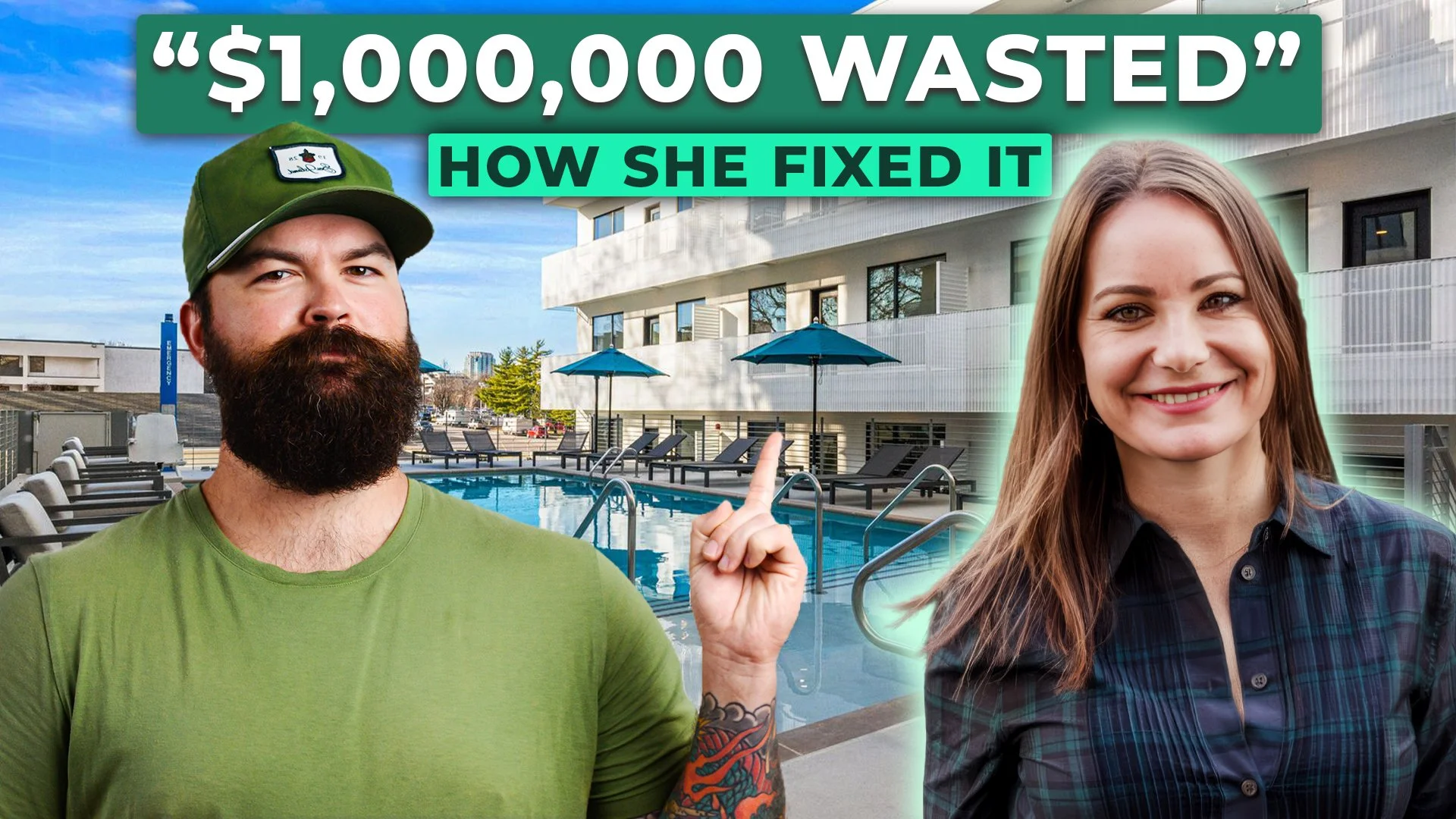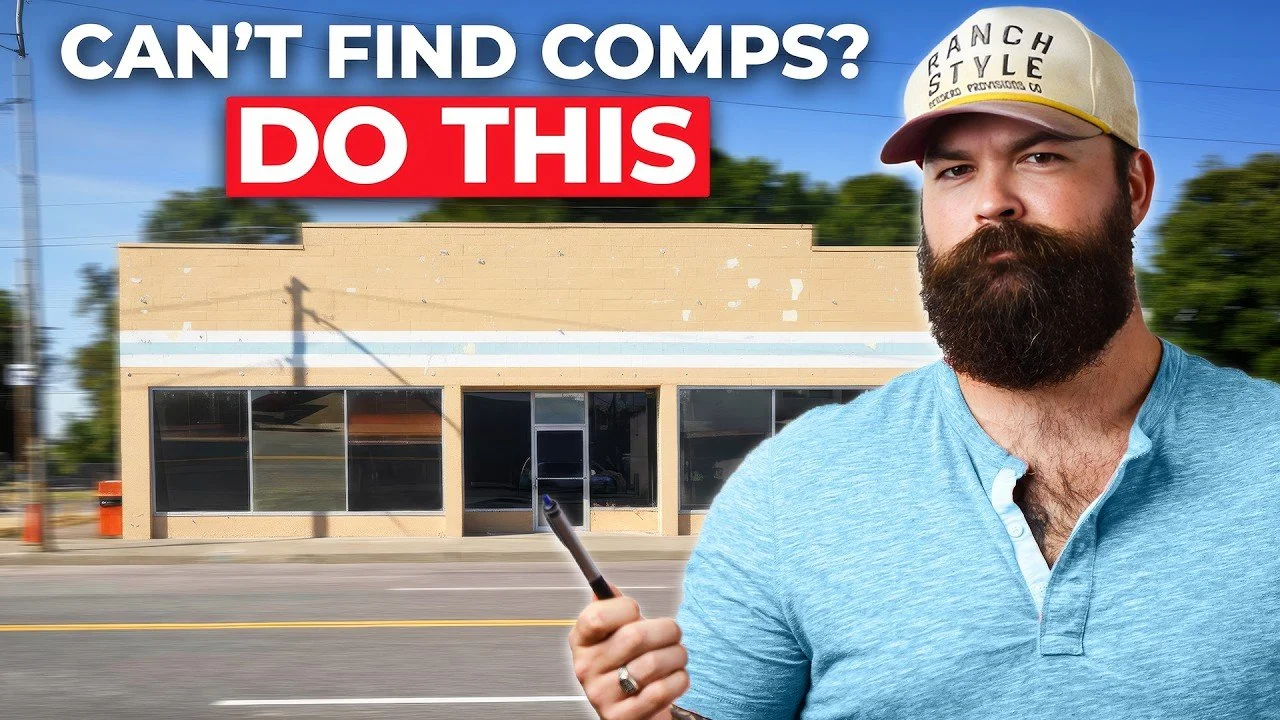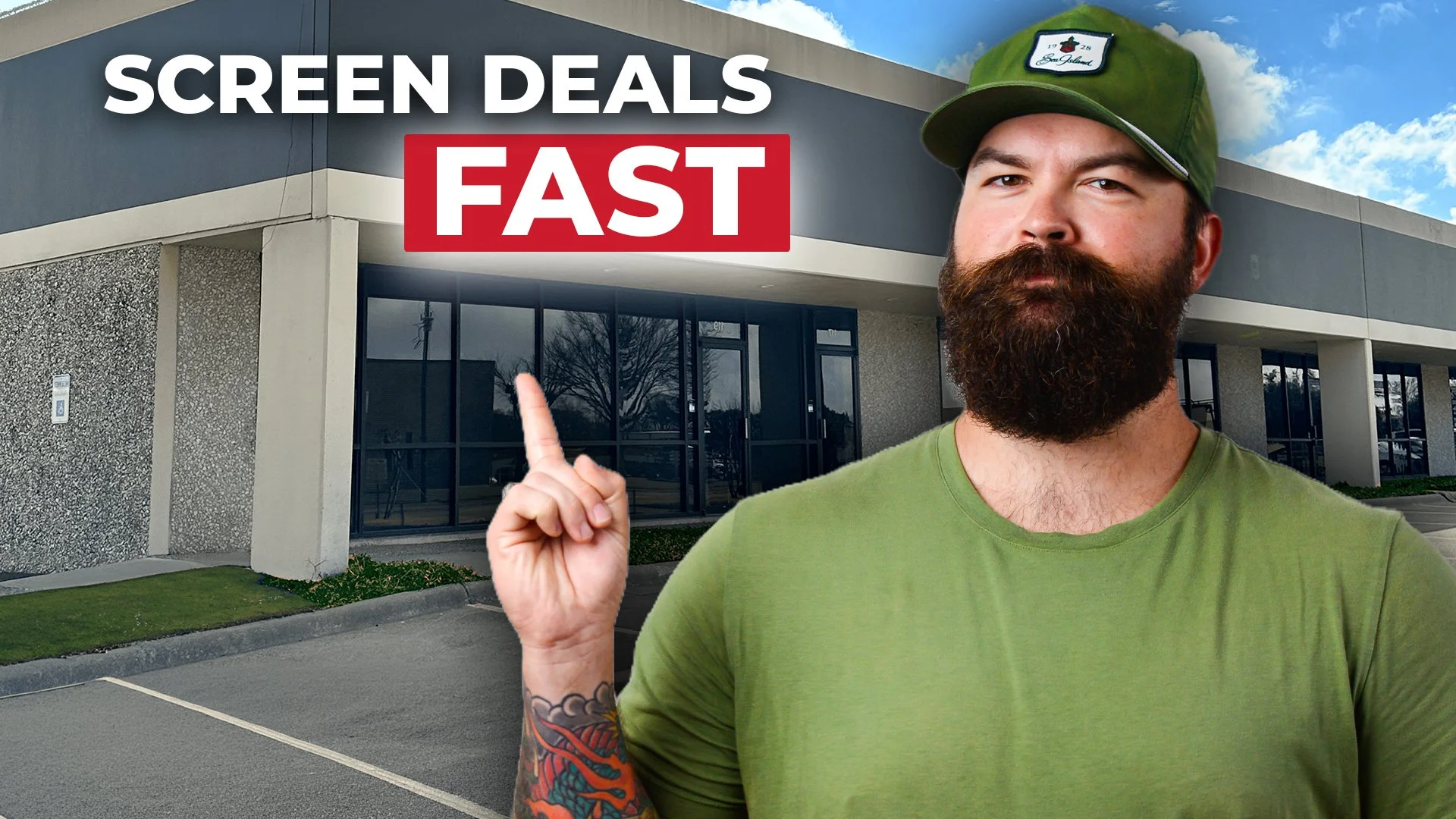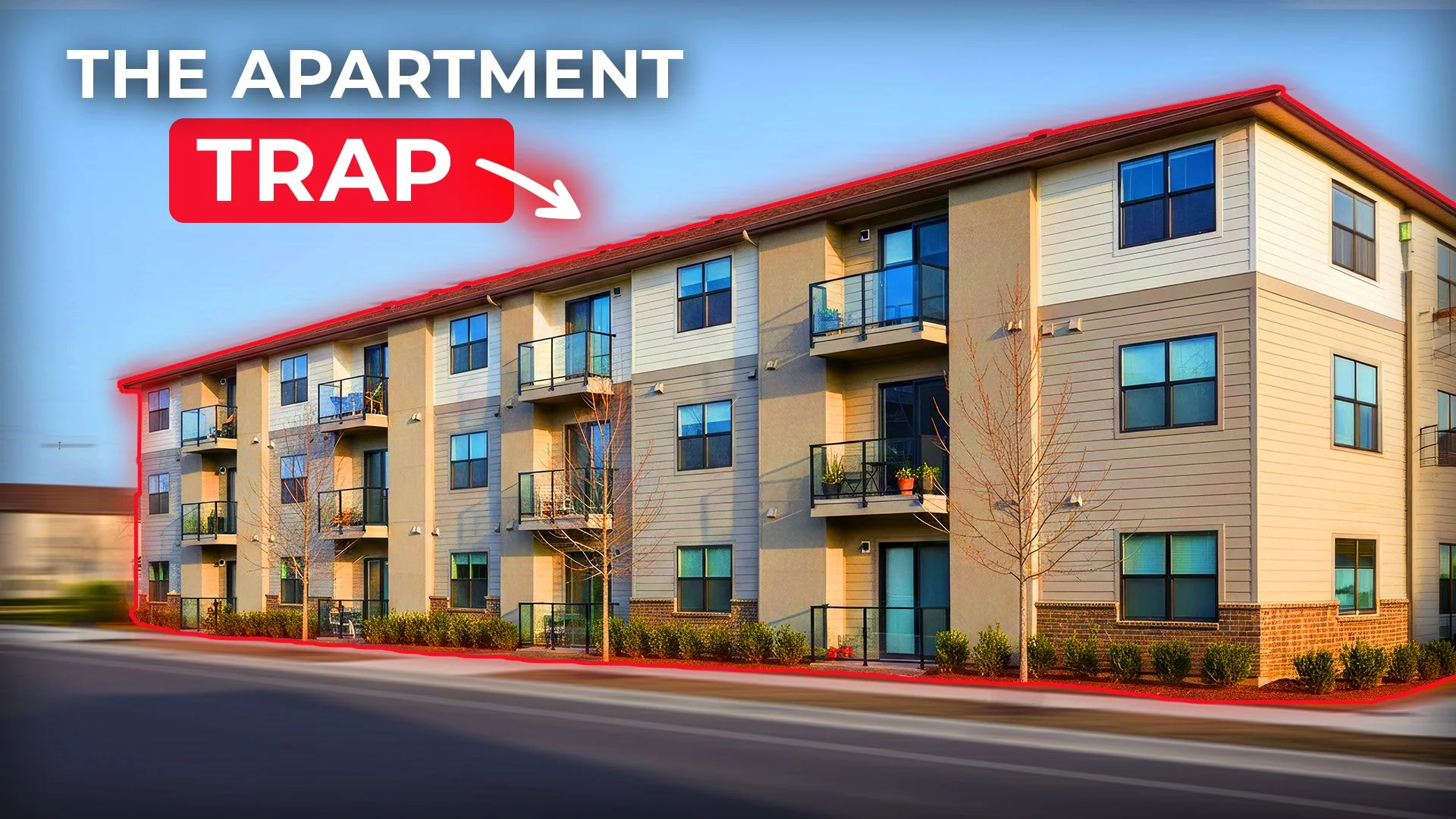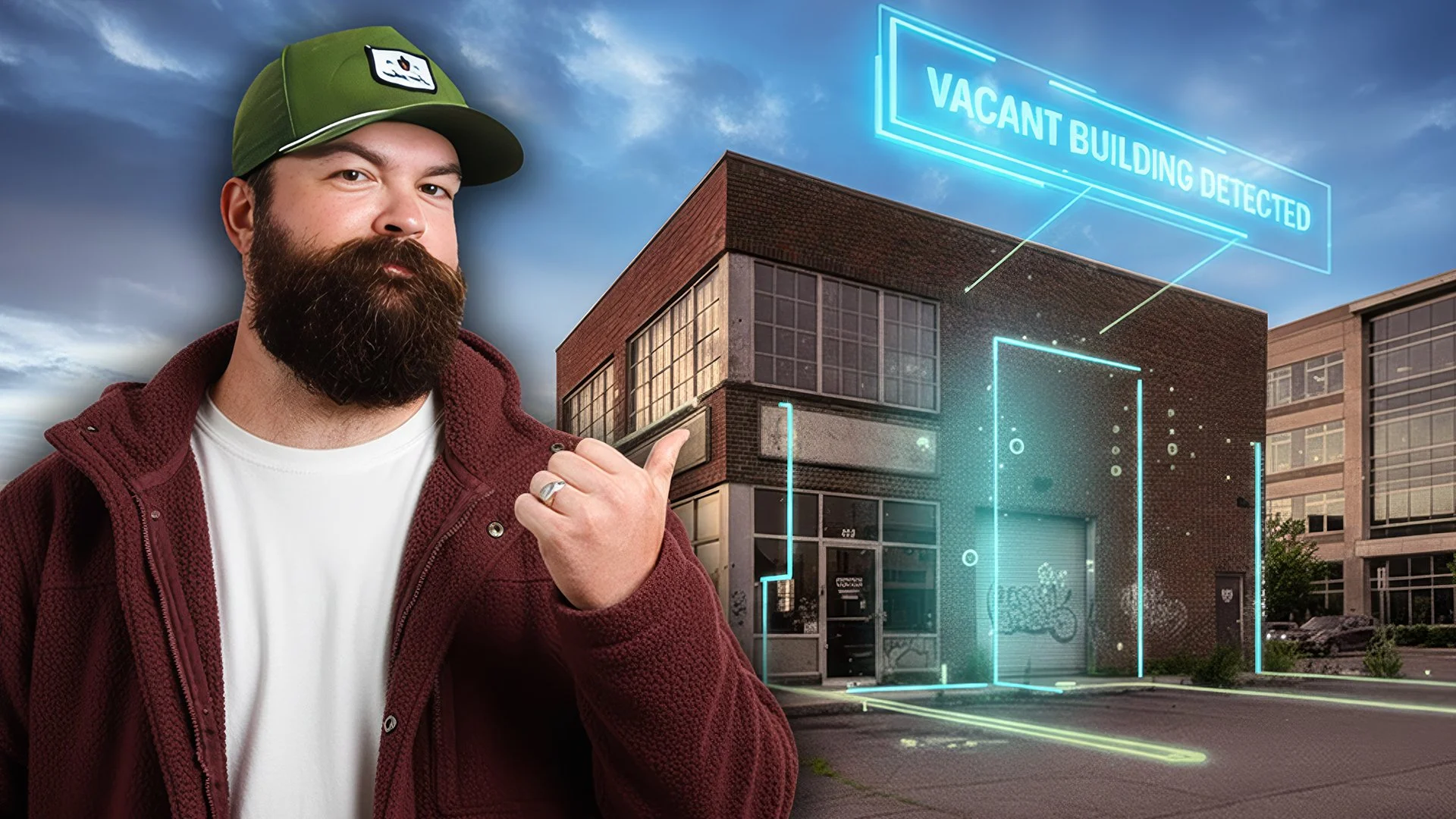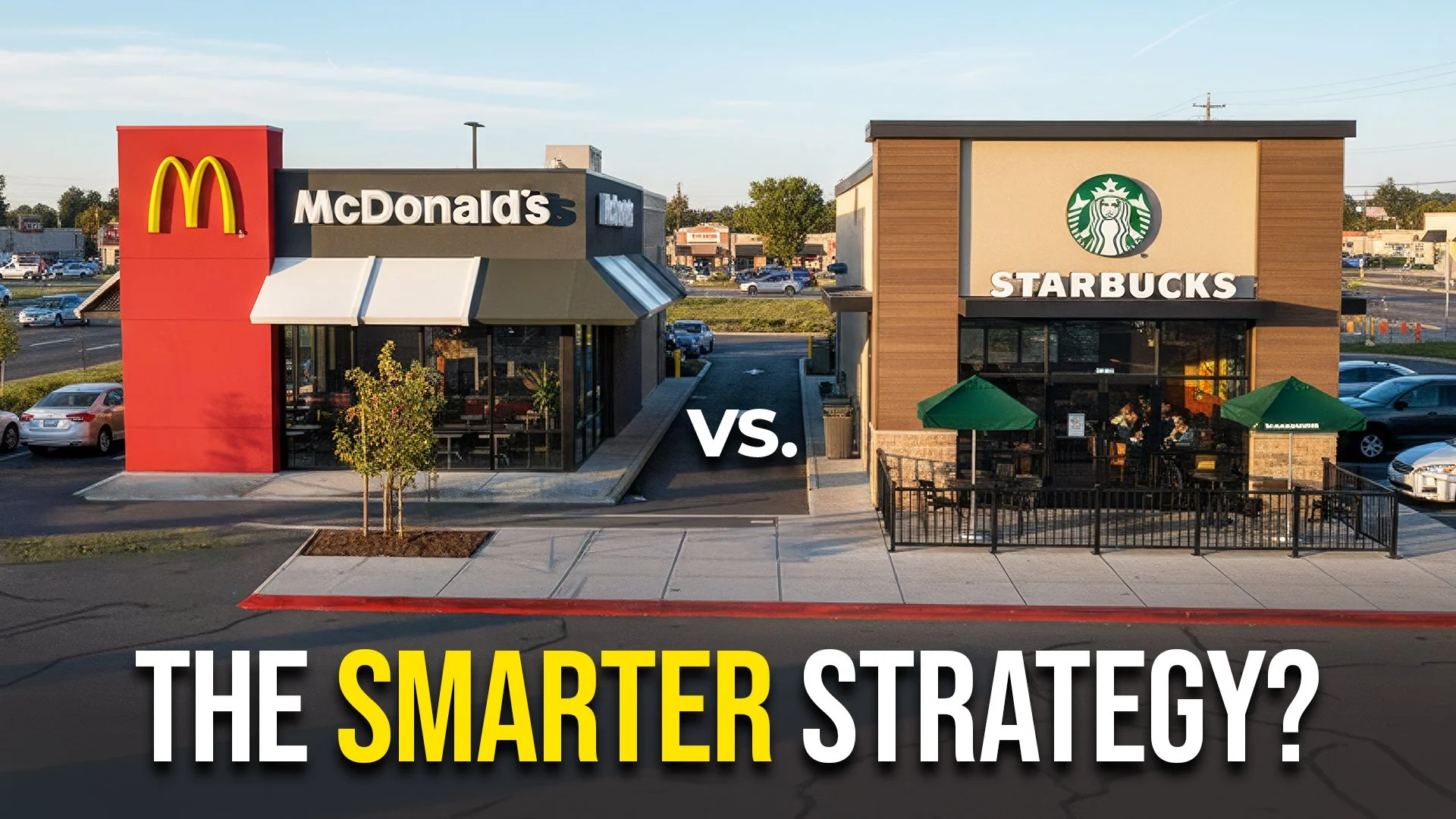Best Commercial Properties for First-Time Investors
Not all commercial properties are created equal — especially for beginners. Your first deal doesn’t have to be flashy to be profitable. What it does need is simplicity, stability, and a path to scale.
In this video, I’ll walk you through the top commercial property types that make the smartest first investments:
✅ Small multi-tenant retail centers
✅ Office condos & medical suites
✅ Flex industrial properties
✅ Single-tenant triple net (NNN) deals
You’ll learn what makes these assets beginner-friendly, what traps to avoid, and how to match the right property to your strengths and long-term goals. Plus, I’ll share real-world stories — including my very first commercial deal and how one of my students turned an abandoned car wash into a cash-flowing property.
If you’re ready to buy your first commercial property, this video will help you skip the rookie mistakes and start with a deal that teaches you, pays you, and sets you up for the next one.
Get commercial real estate coaching, courses, and community to jumpstart your investment journey over at CRE Central: www.crecentral.com
Key Takeaways:
Focus on Simple, Manageable Properties
Look for properties under $2 million
Choose assets with low operational complexity
Prioritize properties with stable, long-term tenants
Best Property Types for Beginners
Small multi-tenant retail centers
Office condos or medical suites
Flex industrial spaces
Single-tenant triple net properties
Critical Investment Criteria
Simplicity of operations
Manageable size
Tenant and lease stability
Market familiarity
Scalability potential
Rookie Traps to Avoid
Highly vacant properties
Complex or unique asset types
Unfamiliar markets
Over-leveraged value-add deals
Practical Next Steps
Choose a property type aligned with your strengths
Understand the local market
Underwrite three deals weekly
Build a network of local contacts
Focus on learning, not just immediate profit
About Your Host:
Tyler Cauble, Founder & President of The Cauble Group, is a commercial real estate broker and investor based in East Nashville. He’s the best selling author of Open for Business: The Insider’s Guide to Leasing Commercial Real Estate and has focused his career on serving commercial real estate investors.
Episode Transcript:
Tyler Cauble 0:00
Tyler Cauble 0:00
Not all commercial properties are created equally, especially when you're just starting out. The reality is, your first deal doesn't need to be flashy to be profitable. What it does need is balance, enough income potential to be worth your time, and low enough complexity so that you're not buried in problems you don't even know how to solve yet. I'm Tyler Cobble. I'm founder and CEO of crecentral.com and I've been teaching investors, just like you, how to invest in commercial properties since 2017 in today's video, I'm going to break down the best commercial property types for first time investors, the ones that offer stability and simplicity and solid returns and help you avoid the most common traps that trip up most new beginners.
Tyler Cauble 0:49
When you're buying your first commercial property, the goal isn't just to make money, of course, obviously you want to do that too, but you need to learn the game without losing your shirt. So what makes a first deal smart and survivable. Let's break down the core filters every beginner should apply before jumping in a strong first investment will check a few critical boxes. These aren't flashy criteria, but they're the ones that lead to sustainable wins. Simplicity of operations, avoid properties that require intense daily management or complicated build outs. You're not trying to become a property manager. You're trying to become an investor. Choose an asset that doesn't come with a steep operational learning curve, manageable size and financing smaller deals think under $2 million tend to come with simpler loan structures, less competition from institutional buyers, and more room to negotiate, plus they're just easier to wrap your head around tenant and lease stability. Look for longer term leases with reliable service based tenants. The more consistent the rent roll, the smoother your first ride will be. Market familiarity. You don't need to invest in your backyard, but your first deal should at least be in a market that you understand, or one where you have boots on the ground, that familiarity can help you make better decisions a lot faster and scalability potential, the best first deal teaches you earns for you and sets you up for the next one. If it's an asset type that you can build a portfolio around better you want to walk before you can run and that first deal should show you what's possible without overwhelming you with what's risky. So what types of properties actually check these boxes? Let's break down the top four commercial property types that are beginner friendly and built to scale, small, multi tenant retail centers. This might be one of the most overlooked gold mines for first time investors, especially if you've ever run a small business or lease space yourself, think local strip centers with essential service tenants, barber shops, dry cleaners, insurance offices, coffee shops. Here's why it works. These tenants typically sign multi year leases, and many operate under triple net structures, meaning they cover most, if not all, of the property's expenses. These centers also provide multiple income streams, reducing your risk if one tenant leaves. Here's what to watch the lease expirations. Staggered leases are ideal, so all of your tenants don't roll at the same time. Also assess the strength and stability of each tenant's business model, retail is one of the best ways to ease into commercial especially when you stick to daily use businesses that your community relies on, office condos or medical suites. Think medical offices are intimidating. They might actually be one of the most stable tenants you'll ever land smaller office or medical spaces, often part of larger professional complexes can be a very manageable entry point. Here's why it works. Medical and office professionals tend to sign longer leases and invest heavily into their spaces, which can lead to lower turnover. Building owner associations often handle exterior maintenance, which reduces your workload. But here's what to watch, office demand varies by market. Nashville is not the same as San Francisco today. Choose locations with strong fundamentals, growing populations, nearby hospitals or limited competing space. Medical users are sticky tenants. If they've built out a space with specialized equipment, they're probably not going to be moving anytime soon. Flex industrial, your basic office with a warehouse, boring, maybe profitable, absolutely flex industrial might just be the most forgiving asset in all of commercial real estate. These are very versatile spaces used by electricians, HVAC techs, local distributors, small e commerce companies. Here's why it works, low tenant turnover, minimal interior finish requirements and high demand make it a very efficient and scalable asset class. It's also less visible typically, and therefore less emotionally driven in your pricing. But here's what to watch, look for functional layouts, high ceilings and loading access, as well as industrial zoning or all a plus, or maybe even a necessity, a flex space in your residence. Heavy area can limit your tenant pool bucks. Industrial is where utility meets predictability. It's boring, and that's a good thing. And finally, single tenant Triple Net Properties, this is about as close to mailbox money as it gets, but only if you know what you're buying. Single tenant buildings leads to national or regional tenants like Dollar General or AutoZone or fast food franchises, all better tenants than that guy down the street who just came and knocked on a door asking for a room. Here's why it works. Triple Net leases push the burden of expenses onto the tenant, offering consistent cash flow with minimal management on your side, these deals are often backed by corporate guarantees, which adds quite a bit of stability. But here's what to watch out for. These lease terms and tenant credit are incredibly important. A 15 year lease with a strong guarantor is very, very different from a three year deal with a mom and pop. If passive income is your goal and you can stomach a little upfront capital, triple net can be the closest thing to mailbox money in commercial, each of these property types offers a manageable entry point for new commercial investors, especially when paired with strong leases and good market fundamentals. The key is picking the asset type that aligns with your background, your risk tolerance and your goals. Now all of that sounds great in theory, but let me show you what it actually looked like in the real world. Here's how I approached my very first commercial deal. Back in 2019 I bought my first commercial property, 6000 square foot office building. It was listed for $750,000 and I ended up getting it for about $575,000 right around $97 a square foot, which was well below replacement cost. Shout out to me for negotiating that one. Originally, I wasn't even planning to buy it. I was actually brokering it for a client, but the deal fell through two times, two different buyers backed down, and after doing all of the due diligence and getting to know the property, I just decided, You know what, I'll buy it myself. I raised $100,000 from two investors and got a line of credit for the rest. We replaced the HVAC, stabilized it with two tenants, and eventually sold it to one of those tenants for $740,000 every dollar, everybody walked away with a solid return. And more importantly, I walked away with confidence. Obviously, I didn't retire off this property, but that deal taught me how to raise capital, how to structure equity, how to manage risk, build relationships, all in one shot. And that's exactly what your first deal should do. And if you think your first deal has to be picture perfect. Let me tell you about Chris, one of the investors in my cre accelerator mastermind. Chris was walking out with his daughter in Gainesville, Florida when he struck up a conversation with the owner of an old rundown car wash. Within days, he had it under contract, and what started as a quick flip turned into a full blown redevelopment. He transformed this abandoned car wash into a set of modular micro retail suites. But didn't come without its challenges, like discovering that the property had no plumbing. He had to dig up the street, connect to city infrastructure and completely rethink his original budget. Instead of filling in the garage doors with concrete block, he used false walls to keep flexibility for future tenants. He also pre leased 50% of the space before construction was even complete using nothing but a QR code on a sign and a basic web form. And by the time it was done, the Property Appraised at a million dollars, up from a $400,000 purchase and around $350,000
Tyler Cauble 8:17
in improvements, that deal now generates a 25% cash on cash return for him, but more importantly, it gave Chris the confidence and the playbook to go and do it again. All right, so now you know what to look for, but just as important knowing what to avoid, here are the rookie traps that will kill your deal before it even starts, highly vacant properties needing a turnaround. Now, don't confuse potential with profit vacancy. Heavy buildings can sink even experienced investors. A building that's 60% vacant might look like an opportunity. Typically, it is, in my experience, but unless you have leasing experience, strong local relationships and maybe even deep reserves, it's a gamble. If you've never leased commercial space before, don't buy a vacancy problem and assume that you'll solve it day one. The seller would have done that already if that was so easy special use or complex asset types. If it takes a niche operator to run it, it probably takes niche expertise to own it, hotels, marinas, event venues, gas stations. They may seem attractive because they're unique, but that uniqueness often comes with complexity and risk. Unique properties attract unique problems, stick to proven models before ever trying to reinvent the wheel. Unfamiliar markets without local support. If you wouldn't feel comfortable walking the neighborhood yourself, don't buy property there a deal two states away might pencil out beautifully until you realize you don't know the neighborhood, the zoning quirks or the local brokers. You don't need to invest where you live, but you do need to know the market like a local over leverage value add deals. The worst mistake a new investor can make is assuming the pro forma is guaranteed. A deal that just needs some work can turn into a capital pit. Don't assume. That the numbers will work just because the broker's offering memorandum says that they will run your own math and get out there and stress test it. In short, your first deal should teach you the business not test your ability to survive. It, even if the numbers look great, a deal that doesn't match your background or your goals is still a bad fit. Let's walk through how to make sure that your first property is actually a match for you first play to your strengths, your past experiences can be your greatest asset. Were you a small business owner? Then small retail may feel familiar. You come from a trade background. Flex industrial might be intuitive. Did you work in healthcare or finance? Medical or professional? Office space may align with your network and your knowledge. The best first deal is when you can mentally model where you don't have to learn everything completely from scratch. Second, start with what you can manage, then scale your first property should feel like a challenge, not a crisis. If you can't confidently underwrite it or operate it or explain it to someone else, like how it works. It's probably too complex for now. Third, use your network and market knowledge. You don't need every single answer. You're not going to know them right off the bat. You don't know what you don't know, but you do need the right contacts. If you already have a broker relationship or lending contacts or service providers in a particular asset class or region, that gives you a massive edge. Every edge matters. Commercial real estate is a team sport, and your team should shape your strategy fourth align with your long term goals. Think beyond this one deal. Yes, you've got to get the first one done, but your first property should be a first step, not a dead end. Ask yourself, is this a one time deal or the foundation of a portfolio that I could build if you want to eventually own several triple net assets or scale into development, choose a property type that aligns with that trajectory. Your first deal doesn't have to be perfect, but it should point you in the right direction. So what's your next move? Well, let's simplify it. Choose one property type that aligns with your strengths, narrow in on a market that you understand, or at least have a team in underwrite three deals this week, even if you don't plan to buy yet, get out there. Find them on loop net, find them on Craxi, and underwrite them. And above all, just start building your reps in the real world. If you want more real world examples of first time investors breaking into commercial real estate the right way. Check out my cre accelerator mastermind inside we break down actual deals, the numbers, the lessons, the wins, the mistakes, everything so that you can shortcut your learning curve and start making smarter moves faster. It's the community and coaching that I wish I had when I was first starting out. That link is in the description below. And drop me a comment if you're deciding between two different asset types. Let me know what you're looking at, and I'll help point you in the right direction. I'll see you guys in the next one.
Unknown Speaker 12:46
You.


